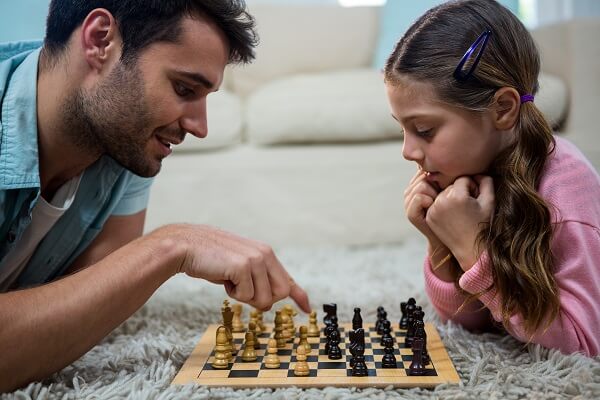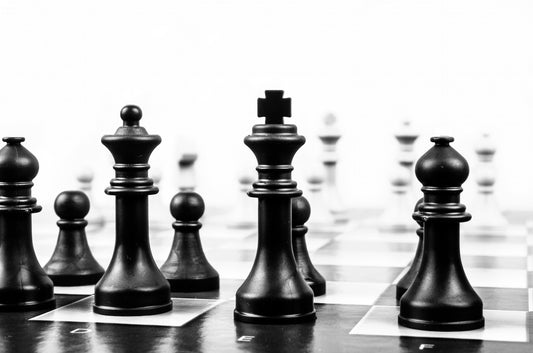
CHESS is a game in a league of its own and has been studied and analyzed for hundreds of years. More books have been written about chess than all other sports combined, which demonstrates the endless intrigue and enjoyment that chess produces. You start off the game with one of 20 possible moves, that number quickly grows towards what seems like an infinite amount of combinations. You can look up Shannon’s Number to dig into the number of possible chess games.
There’s an old story of a King who asks a pauper what he wants as his reward for a good deed, the popper asked for 1 grain of rice for the first square on a chess board which doubles for every square on the board. So, 1 on the first square, 2 on the next, 4 on the next and so on and so forth until all 64 squares are accounted for. The King was quick to agree to this small request, but quickly found out there wasn’t enough rice on the planet much less his kingdom to fulfill it. Einstein is said to have stated that “compound interest is the eighth wonder of the world” and this chess example famously highlights the theme.

It’s been suggested that chess can help raise your IQ, improve memory, help to increase your creativity, and even help with the prevention of Alzheimer’s. Likewise, chess helps to foster social skills through healthy competition, and teaches strategy, planning and foresight. In more recent times chess has proven to be a practical and unique way in which to gauge specific areas of AI (Artificial Intelligence).
Chess is one of the mediums in which genius can be radiated not simply by sheer calculation, but by intuition and creativity as well. Chess is also one of a few things that humans can be born with innate skills at without much training, like music and math. Magnus Carlsen was a grandmaster by the age of 13, and more recently Sergey Karjakin made grandmaster at 12 years old! Samuel Reshevsky use to give exhibitions where he would simultaneously play multiple players when he was 6 years old!
The game of chess itself, is as simple as it is complicated. It takes a few hours to learn the moves but a lifetime to master them. As your experience in chess develops the beauty displayed within the game starts to show itself. After learning the basic moves and playing a few games you learn to appreciate the genius of the masters. It’s amazing to look at some of the games played by young master’s like Bobby Fischer or Josh Waitzkin. Look up Bobby Fischer’s game of the century or Joshua Waitzkin vs Edward A Frumkin for genius games played by these masters when they were 11. Chess games played by the masters are pieces of art compromised of mathematical constructs in patterns and logic.
As we move on chess is still relevant and its history is still being written, especially now as the world moves past the space race, and the arms race to find itself in a potential race for AI. Chess may be a good litmus test for this; recently Google’s AI unbelievably managed to teach itself chess in 4 hours and within that timeframe to become superhuman at it. It crushed a previous AI engine model. It’s true computers now dominate the chess world, with only the very top human grandmasters able to realistically challenge the new chess engines. Spending time playing people from around the world on chess.com shows that a similar ranked human and computer think in vastly different ways.
Sign up to our e-mail newsletter - don't miss out on any of our new articles, promotions or giveaways!




